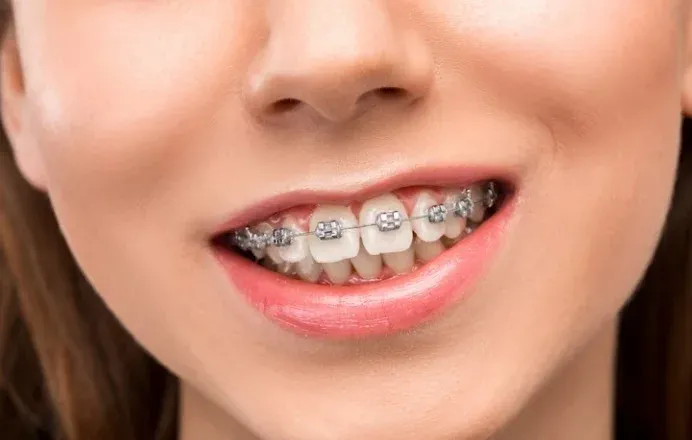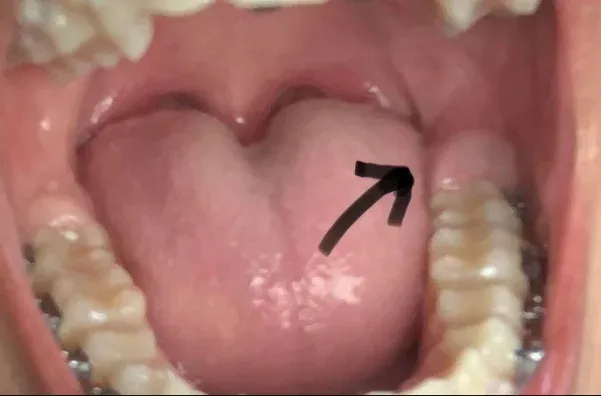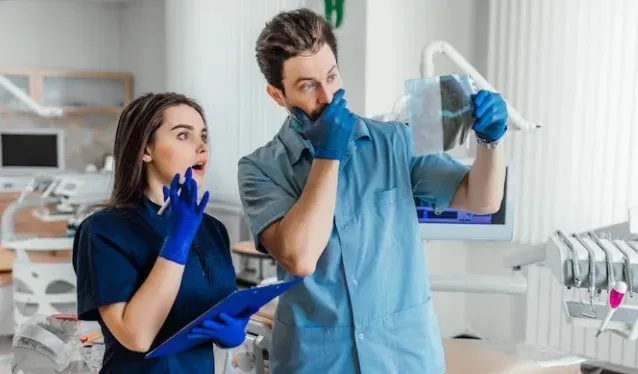Side Effects of Wisdom Tooth Extraction: What to Expect in 2026
Wisdom teeth, also known as third molars, are located at the very back of your mouth….
Wisdom teeth, also known as third molars, are located at the very back of your mouth. When they don’t have enough room to grow properly, they can cause a range of problems that often lead to extraction. Whether you’re preparing for wisdom teeth removal or recovering from the procedure, understanding what to expect can help you navigate the healing process with confidence.
These teeth can become impacted—meaning they’re blocked by other teeth or bone and unable to fully emerge—or they can grow in crooked or at an angle, causing crowding and damage to neighboring teeth. Wisdom tooth extraction is one of the most common oral surgery procedures performed in 2026, and it’s done to prevent or alleviate these complications before they become more serious.
Why it helps: Includes ice packs, gauze, and soothing gel to ease swelling and discomfort during the first critical days of healing.
Common Side Effects of Wisdom Tooth Extraction
The most common side effects of wisdom tooth extraction include pain, swelling, bleeding, and bruising around the extraction site. These symptoms are a normal part of your body’s healing response and typically improve within a week after the procedure, though some patients may experience them for a bit longer depending on the complexity of the extraction.
One of the more serious complications to watch for is dry socket, a painful condition that occurs when the protective blood clot in the extraction site becomes dislodged or dissolves prematurely. This exposes the underlying bone and nerves, causing severe pain that can radiate to your ear. If you’re experiencing throbbing pain after wisdom tooth extraction, it’s important to contact your dentist right away.
Some patients also experience numbness or tingling in the tongue or lower lip, caused by temporary nerve irritation during the extraction. This sensation usually resolves within a few weeks as the nerve heals. Other rare side effects may include infection, difficulty opening the mouth fully, or temporary changes in taste perception.
Side Effects of Upper Wisdom Tooth Extraction
Upper wisdom tooth extraction, also known as maxillary third molar extraction, can present some unique challenges compared to lower wisdom tooth removal. While you’ll still experience the typical side effects like pain, swelling, bleeding, and bruising, there are additional considerations when dealing with upper teeth.
The proximity of upper wisdom teeth to the maxillary sinus cavity creates a higher risk of sinus-related complications. In some cases, the extraction can create a small opening between the mouth and sinus cavity, potentially leading to sinusitis—inflammation of the sinus lining that can cause sinus pain, pressure, or infection. Your oral surgeon will take special precautions during the procedure to minimize this risk.
Dry socket can still occur with upper wisdom teeth, though it’s somewhat less common than with lower extractions. The symptoms remain the same: severe pain, bad breath, and an unpleasant taste in your mouth. Following your dentist’s post-operative instructions carefully, including avoiding straws and not smoking after tooth extraction, can significantly reduce your risk of developing this complication.
Long-Term Side Effects of Wisdom Tooth Extraction
The good news is that long-term side effects of wisdom tooth extraction are generally minimal and rare. Most patients heal completely without any lasting issues. However, it’s important to be aware of potential long-term effects that can occasionally occur:
- Changes in bite alignment: The removal of wisdom teeth can sometimes cause the remaining teeth to shift slightly to fill the gap. This may lead to minor changes in your bite or tooth alignment, though significant malocclusion is uncommon.
- Jaw pain or stiffness: Some patients experience lingering soreness or stiffness in the jaw muscles and temporomandibular joint (TMJ), especially if the extraction was complex or required extended mouth opening.
- Bone density changes: The extraction site will naturally experience some bone remodeling over time. In cases where wisdom teeth were deeply impacted, there may be a slight decrease in bone density in that area of the jaw.
- Sinus complications: If an upper wisdom tooth was very close to the maxillary sinus, there’s a small chance of developing a persistent sinus opening or chronic sinus issues that may require additional treatment.
- Permanent nerve damage: In very rare cases, nerve damage may be permanent, leading to ongoing numbness, tingling, or altered sensation in the lower lip, tongue, or chin. This occurs in less than 1% of extractions.
- TMJ disorder: Some patients may develop temporomandibular joint disorder as a result of the extraction, particularly if there was significant trauma to the joint during the procedure or if the mouth was held open for an extended period.
It’s worth emphasizing that these long-term effects are uncommon, and the vast majority of patients experience complete healing with no lasting complications. Regular follow-up appointments with your dentist can help identify and address any concerns early.
Why it helps: Gently flushes food particles from extraction sites without disturbing healing tissue, reducing infection risk.
Side Effects of Smoking After Wisdom Teeth Extraction
Smoking after wisdom tooth extraction is one of the worst things you can do for your recovery. The chemicals in cigarettes, particularly nicotine, can significantly interfere with the healing process and increase your risk of serious complications.
Here’s what smoking can cause after your extraction:
- Severely delayed healing: Nicotine constricts blood vessels, dramatically reducing blood flow to the extraction site. This means less oxygen and fewer nutrients reach the healing tissue, slowing down recovery by days or even weeks.
- Dramatically increased dry socket risk: The suction created when inhaling smoke can dislodge the protective blood clot, and the chemicals in tobacco can prevent proper clot formation. Smokers are up to three times more likely to develop dry socket than non-smokers.
- Higher infection rates: Smoking introduces bacteria and irritants directly into the healing wound, significantly increasing your risk of developing an infection at the extraction site.
- Unpleasant taste and odor: Smoking can cause a persistent bad taste and smell in your mouth, making it difficult to eat, drink, and maintain proper oral hygiene during recovery.
- Nerve irritation: The heat and chemicals from smoking can aggravate already sensitive nerves, potentially worsening or prolonging any numbness or tingling sensations.
- Increased swelling and bruising: Smoking can exacerbate inflammation, leading to more pronounced swelling and bruising that lasts longer than it would otherwise.
- Extended recovery time: Overall, smokers can expect their healing time to be 50-100% longer than non-smokers due to the cumulative effects of reduced blood flow and increased complications.
Dental professionals strongly recommend avoiding all tobacco products for at least 72 hours after extraction—ideally for a full week or longer. If you’re struggling with nicotine cravings, talk to your oral surgeon about nicotine patches or other alternatives that don’t involve smoking. Better yet, consider using this as an opportunity to quit smoking altogether for the benefit of your overall health.
How Long Do Wisdom Teeth Holes Take to Heal?
The healing timeline after wisdom tooth extraction varies from person to person, depending on factors like the complexity of the extraction, your age, overall health, and how well you follow post-operative care instructions. Understanding the stages of healing can help you know what to expect.
The Three Stages of Healing
Initial Healing Phase (24-72 hours): This critical first stage begins immediately after your extraction. A blood clot forms in the socket, which is essential for protecting the underlying bone and nerve endings. This clot acts as a natural bandage and foundation for new tissue growth. During this time, you’ll likely experience the most discomfort, swelling, and bleeding.
Inflammatory Phase (3-5 days): Your body’s immune system kicks into high gear during this stage, sending white blood cells to clean up the extraction site and remove any debris. You may notice that swelling peaks around day 2-3 before gradually improving. This stage is crucial for preventing infection, which is why following your dentist’s care instructions is so important.
Remodeling Phase (several weeks to months): This is the longest stage of healing, during which your body rebuilds and strengthens the bone in the area where the tooth was removed. While the visible socket will appear to close within 2-3 weeks, complete bone healing can take 3-6 months. This stage is essential for maintaining the integrity of your jaw bone and preventing future dental issues.
What to Expect During Recovery
Most patients find that the extraction site feels significantly better after the first week, with pain and swelling greatly reduced. The visible hole in your gum will gradually fill in with soft tissue over the next few weeks, though you may still be able to see or feel a slight indentation for several months.
If you’re experiencing severe pain several days after your extraction, this isn’t normal and could indicate a complication like dry socket or infection. Contact your dentist immediately if your pain worsens instead of improving, or if you develop a fever, excessive swelling, or pus drainage.
Following your oral surgeon’s post-operative care instructions—including avoiding smoking, not using straws, eating soft foods, and keeping the extraction site clean—can help minimize complications and promote faster healing. Most patients can return to normal activities within a few days, though complete healing takes longer.
Why it helps: Provides nutritious, easy-to-eat meal ideas that won’t irritate your extraction sites during the critical healing period.
Final Thoughts on Wisdom Tooth Extraction Recovery
While wisdom tooth extraction can seem daunting, understanding the potential side effects and what to expect during recovery can help you feel more prepared and confident. Most side effects are temporary and manageable with proper care, and serious complications are relatively rare when you follow your dentist’s instructions.
Remember that everyone’s healing journey is unique. Some patients bounce back quickly with minimal discomfort, while others may need a bit more time and patience. Listen to your body, don’t hesitate to reach out to your oral surgeon with questions or concerns, and give yourself permission to rest and recover properly. With the right care and attention, you’ll be back to your normal routine before you know it.







